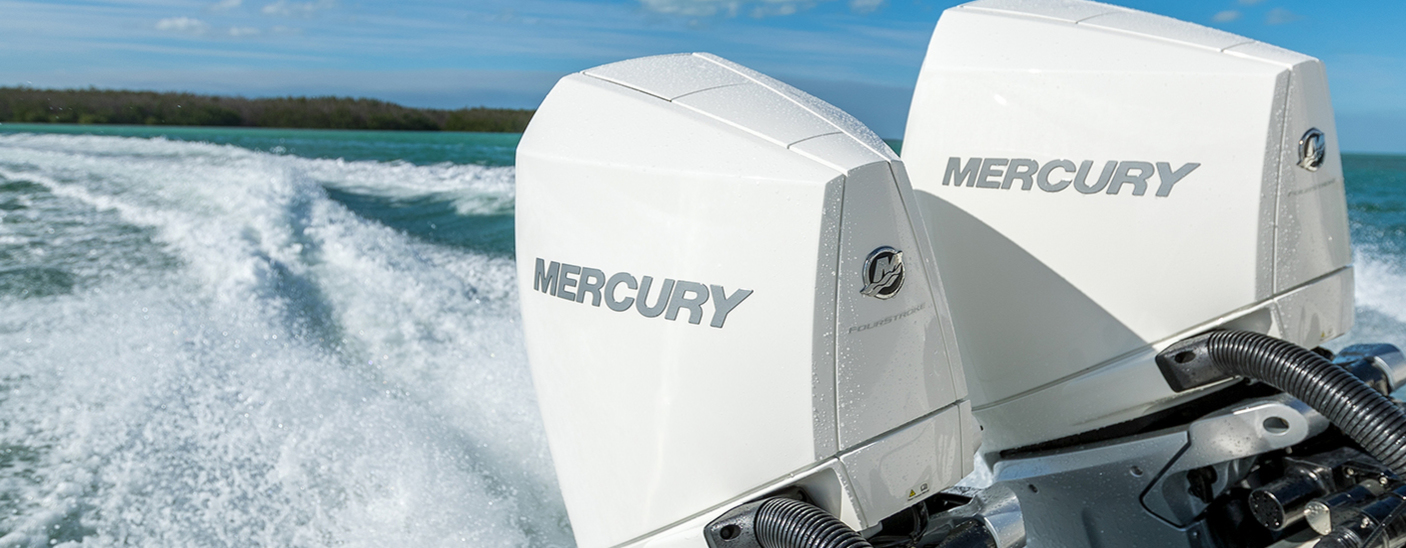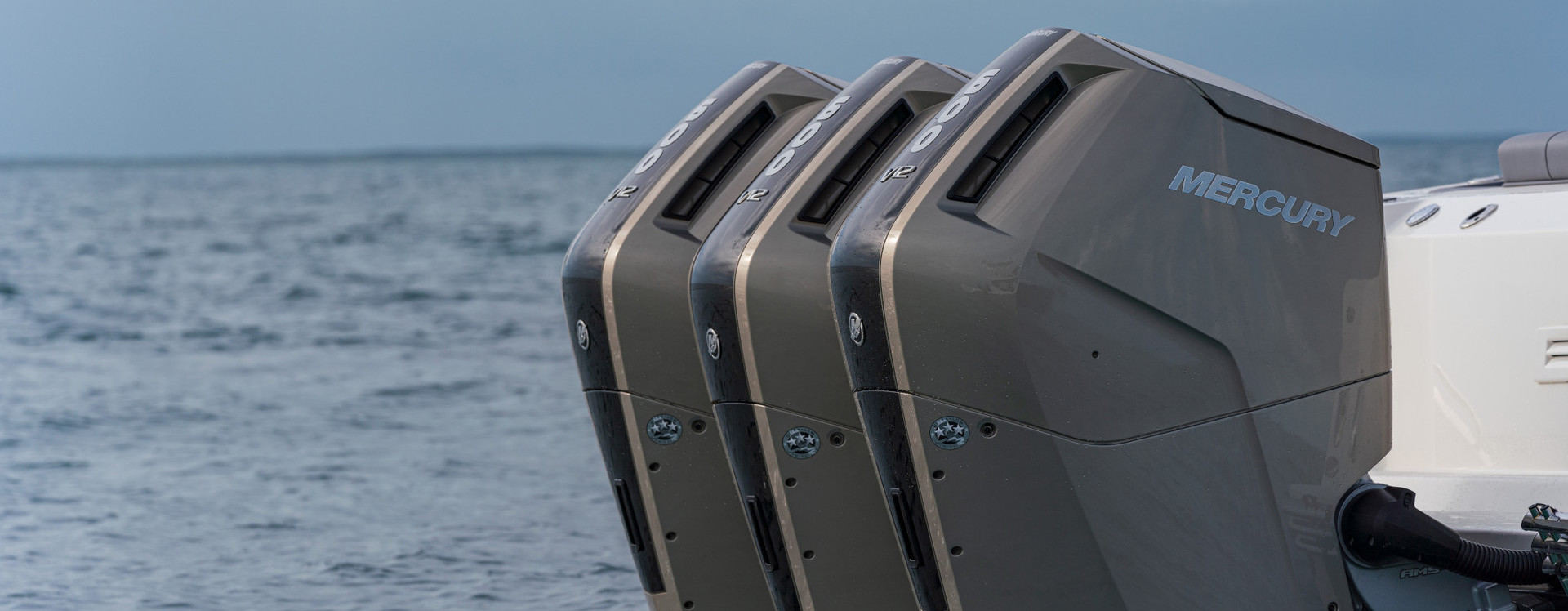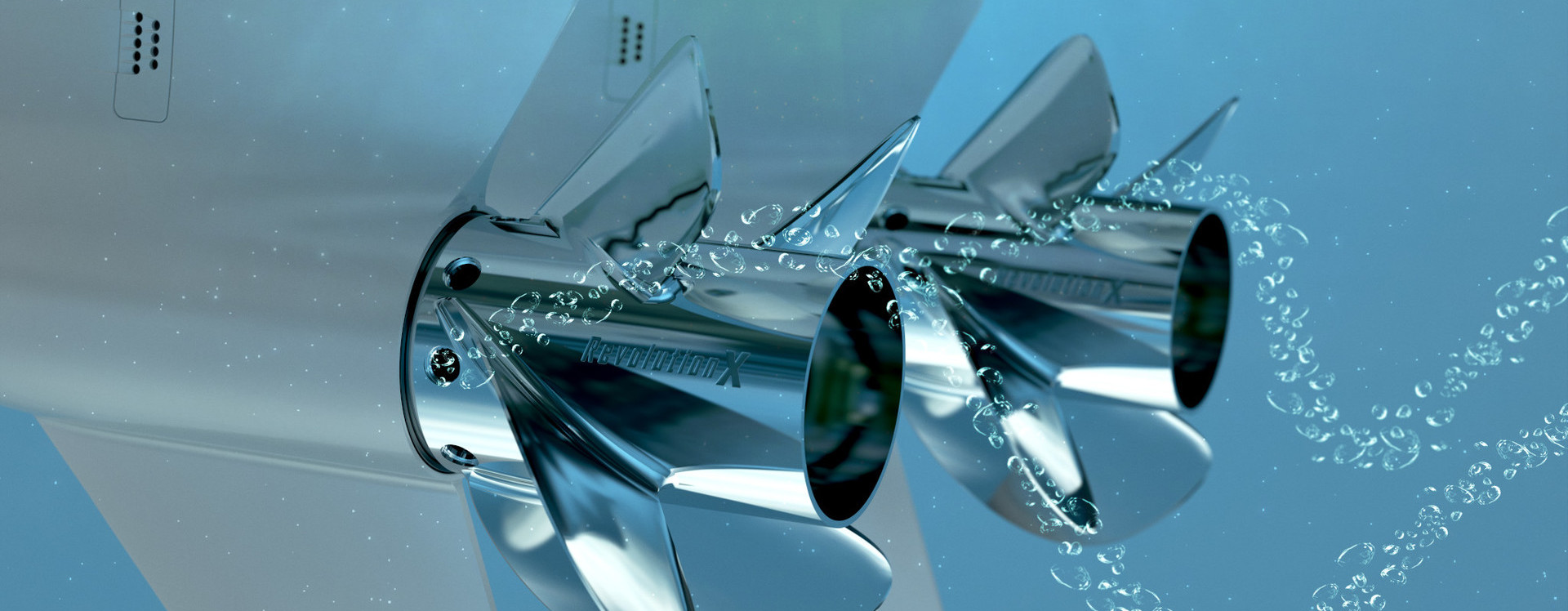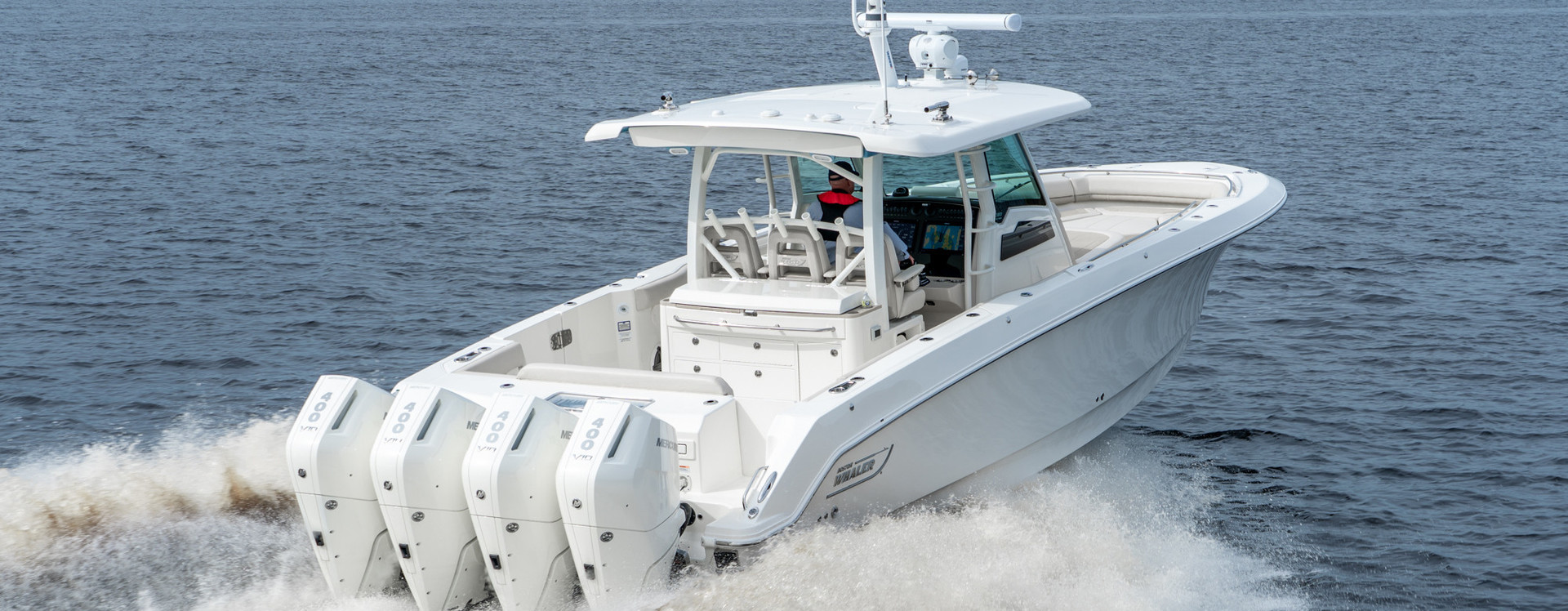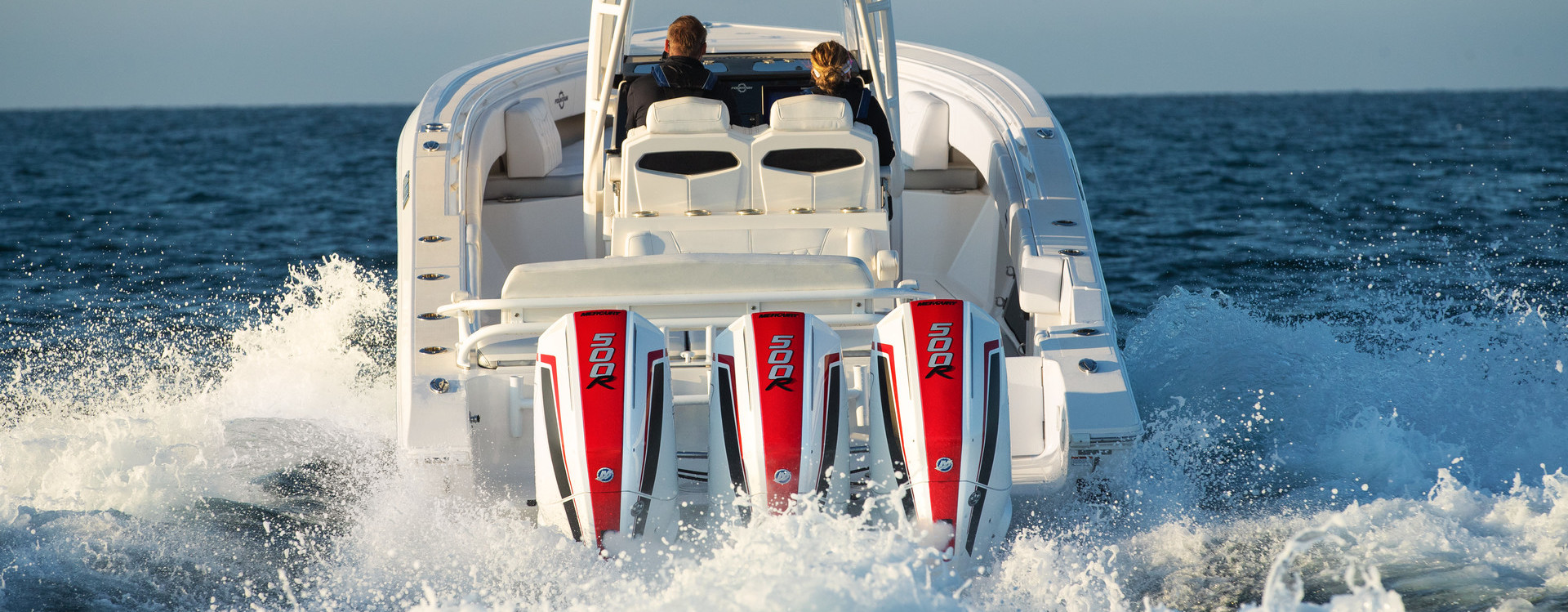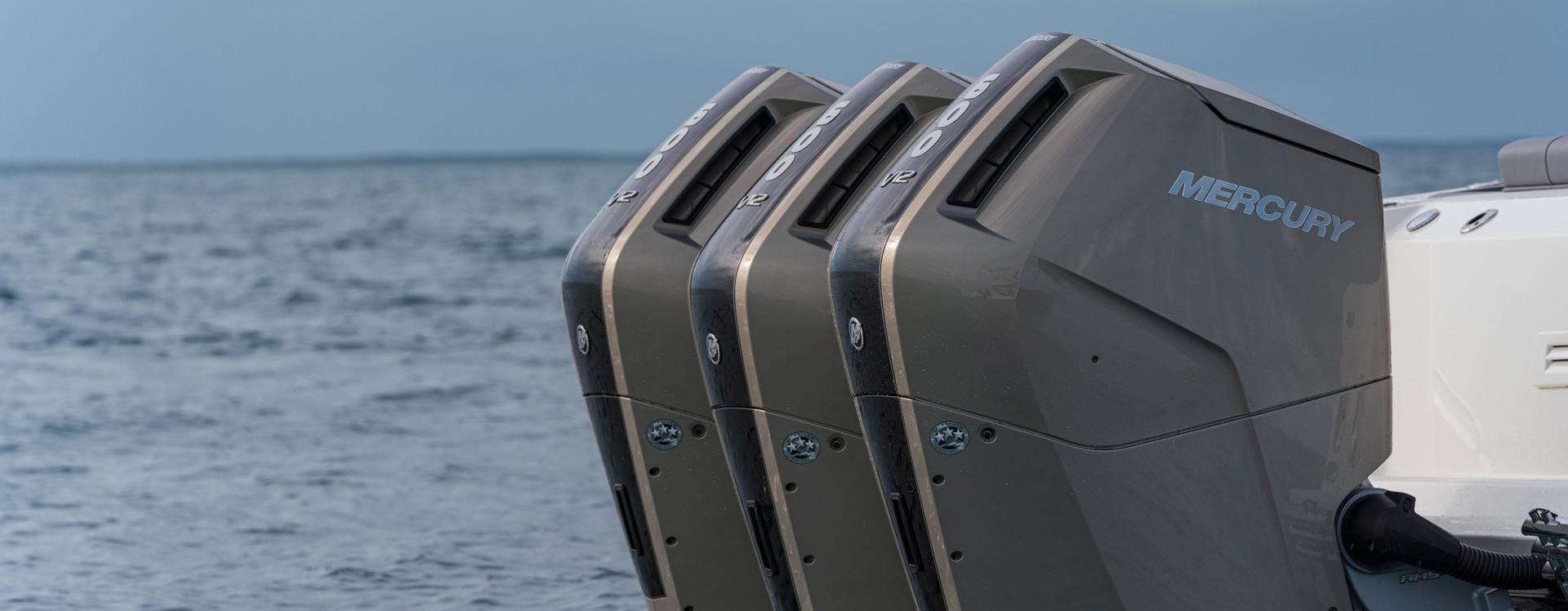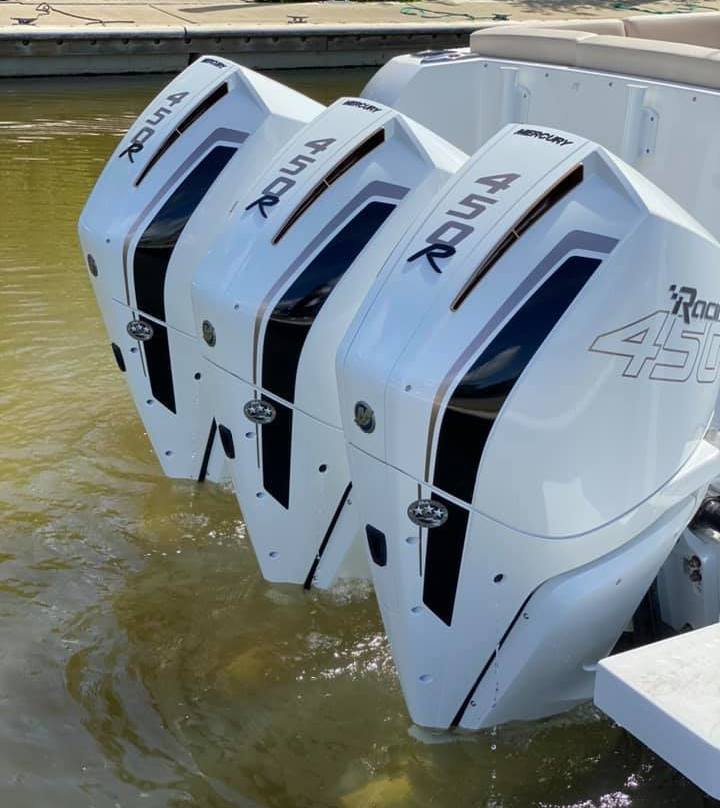Thinking of Repowering? We can help!
Posted on 14th July 2022 at 18:50
If you've been weighing the pros and cons of buying a new/used boat versus repowering the boat you already have, we think that we can help you make the right decision. We've put together some information that could be useful for you.
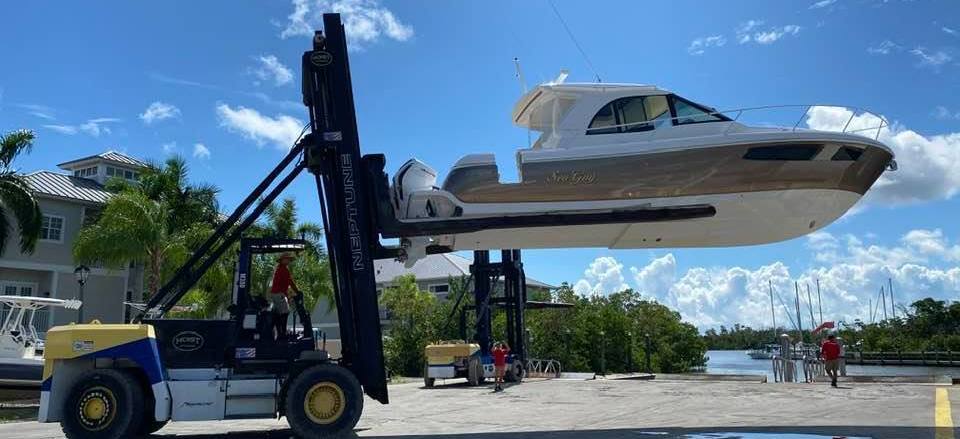
One of the services that we proudly offer at Amzim is repowering your boat. We’ve repowered boats ranging from Gheenoes to Formula 430 SSCs, and everything in between. Most recently, we were asked by one of our customers to tackle a BIG job: repowering his 41 Intrepid with triple Mercury Racing 450Rs. One might think “But Amzim, repowering is one of your specialties! Why is this such a BIG job?” Well I’m so glad you asked, dear hypothetical reader! It was a big job because we had to convert the boat from a Yamaha driven vessel to a Mercury driven one. In the pictures below, you can see exactly how daunting the task is. So, why should you consider repowering your boat versus buying a new one? Why is repowering your car considered bad, and repowering your boat good? We can answer those questions for you, so you can make an informed decision as to what is right for you!
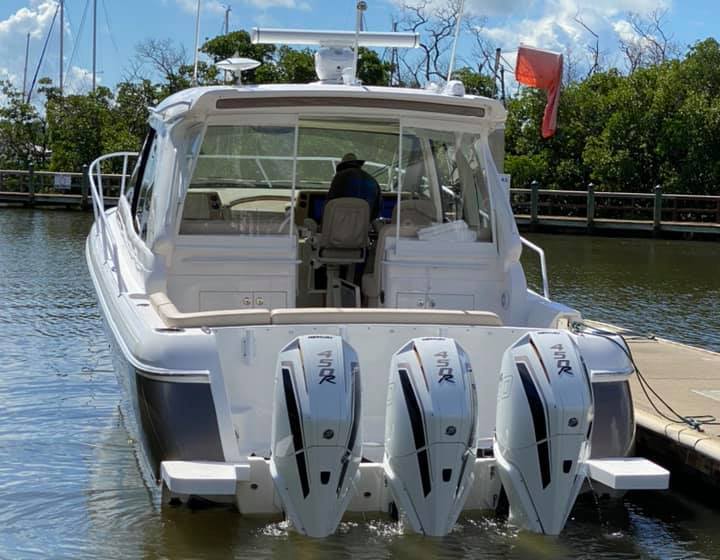
First time this Intrepid was put in the water after the extensive repowering services provided by Amzim Marine
First, let's take a look at those 2 options: buy a new boat, or update an older one. We’ve discussed the value of purchasing a used or preowned boat in a previous blog. In short, purchasing a used boat is a better investment in the long run. While buying a new boat can get you the latest and greatest in technology and design, the new boat market is becoming more of a niche market. To be honest, a lot of families are being priced out of the boating world because of this; with prices on the rise and that steep entry point, people just can’t justify making that investment. Unfortunately, most people are unaware of exactly how much they can save by buying a “junker” and fixing it up. A perfect example: when Gary and Cindy first moved to America from Zimbabwe, they wanted to have the joy of owning a boat and being out on the water in the beautiful Gulf of Mexico, but they thought their income couldn’t support the addition of a boat. Gary found one
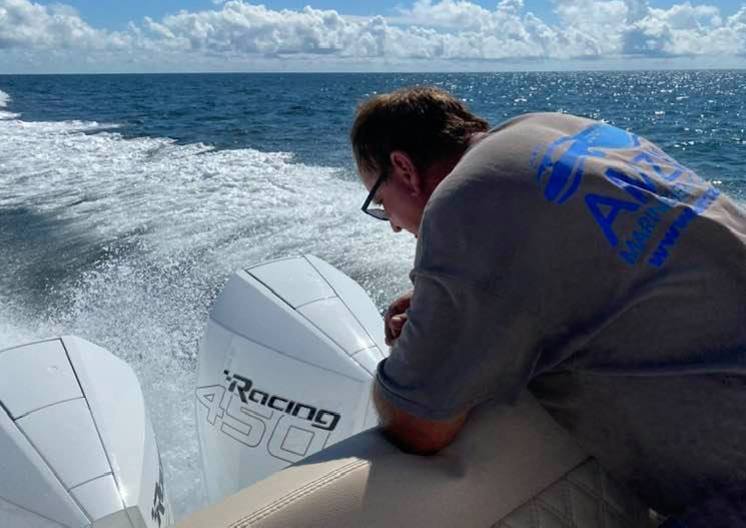
Gary can be seen here inspecting his handiwork installing these 3 Mercury Racing 450R motors on the back of this Intrepid.
that suited their needs for $1,500, and he fixed up the boat in his own time. He found a used motor, cheap gauges, and a working throttle, and off they went into the wild blue yonder! While all the fancy bells and whistles are nice to have, one does not need 17 inch touch screen GPS screens that file your taxes for you. An intact hull, a working motor, and a couple gauges to monitor that motor is all you need!
To address the second question, a lot of people equate boats to cars. They both have motors, they both have electronics, they both need to be cleaned regularly, and they both require routine maintenance. With that said, following that logic means that boats and dishwashers are very similar as well. The one thing that every car buyer dreads seeing is “Rebuilt Title”; aside from being a nightmare to insure, a rebuilt title could mean any number of potential headaches in the future. It could mean that there was catastrophic engine damage, that there was an accident that damaged the frame of the vehicle, or in some cases, that the car was literally underwater after a flood. Either way, it leaves a LOT up for interpretation and opens you up to unnecessary risk. A more accurate comparison would be of a boat to a house; just because the water heater is broken doesn’t mean that you have to demolish the house. You just get a new heater. Unfortunately, the association with cars persists because both cars and boats are mobile, and houses are (generally speaking) not. Boats and cars have one very big differentiator: one lives on the paved ocean of land, and the other exists solely in the water. There are plenty of people who believe that a boat whose motor has been replaced is somehow irreparably damaged and unusable, and there are plenty of people who think it would just be easier to buy a new boat. So, let’s break down why this fervent belief is absolutely untrue when it comes to the boating world, and why abandoning hope and buying a new boat may not be your best option.
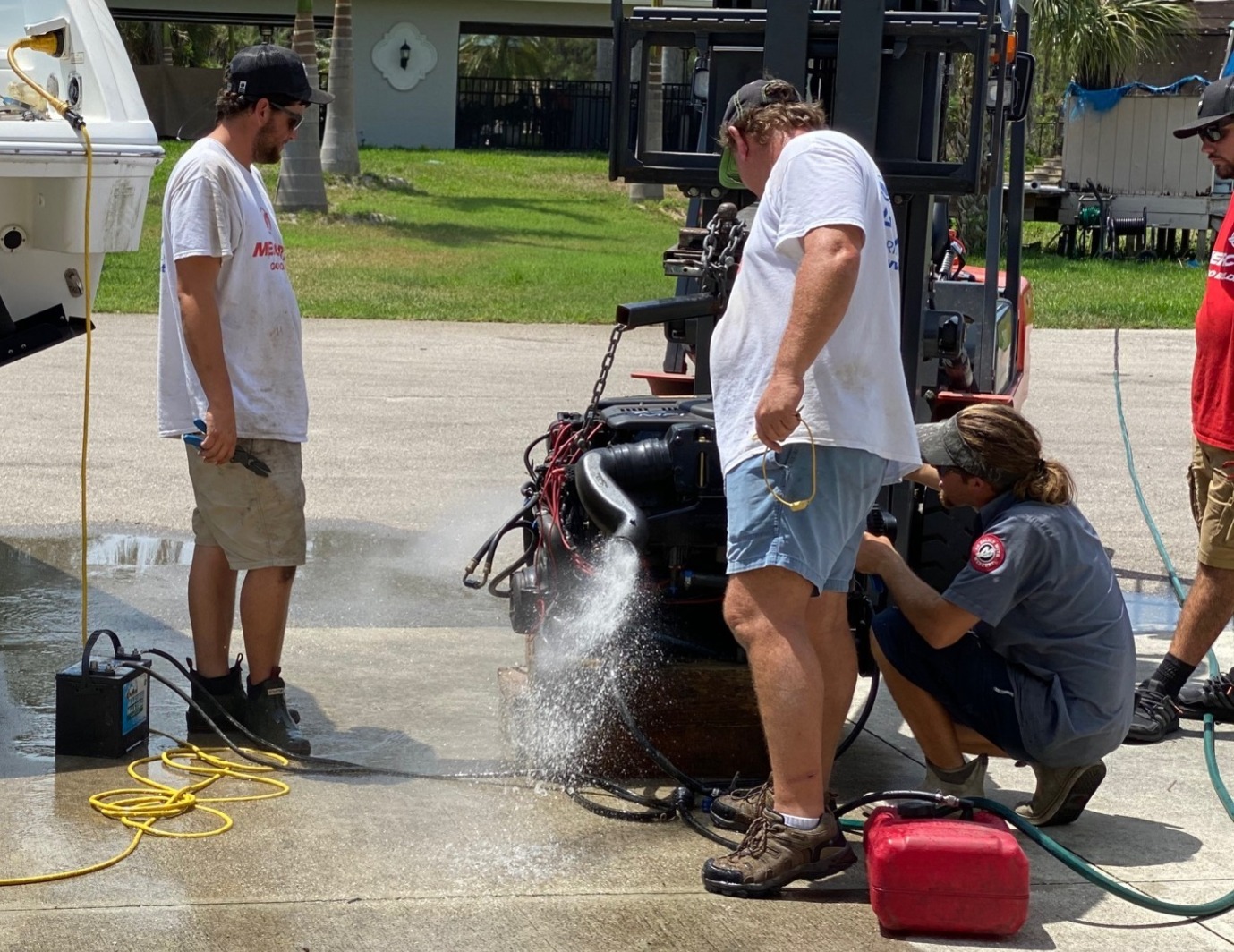
It is very important to us to make sure the motor actually functions properly prior to installing it into a boat. You can see Gary, Laz, and Zach here testing a Mercruiser prior to intallation here.
As with any object in existence that has moving parts, motors wear down over time. Friction, repetitive motion, high heat, and operator errors all contribute to the eventual breakdown of ANY motor. That’s why you have to always flush your engines with fresh water after every run, change your oil, and monitor your engine temperature. Unfortunately, these problems are exacerbated by the introduction of salt water (especially in South Florida). Boat motors have a unique advantage over cars; where car motors need to be cooled down with a cooling system wherein coolant is circulated around key areas of the motor to suck up heat and redistribute it to your radiator. Boats don’t require a closed cooling system (although some motors come with one) because they run in the biggest heat sink in the world: the ocean! By sucking in water from the ocean and circulating it around the motor, and pushing it back out, one can indefinitely keep a motor cooled. When you go to the beach and spend time in the ocean, after a while, you start to notice there is a granular feel to your skin and hair. This is the salt left behind after the water has evaporated from your skin. The same thing happens to your boat; after a journey in the Gulf of Mexico, you can see where the salt has collected on the surface of your hull. The problem is, that salt also gets into your boats motors and exhaust manifolds as well. If you flush your motors with fresh water after every trip (as we ALWAYS recommend), you can mitigate some of the damage, but in reality, you’re only delaying the inevitable!
The secondary side-effect of salt water is what is known as “Galvanic Corrosion”. If you put 2 dissimilar metals in salt water, an electrical charge is created, and the softer of the 2 metals “gives up” its electrons to the surrounding water. The result of this, over time, can be catastrophic. Propellers get eaten away, gear cases become brittle, and internal engine components disintegrate. In our infinite cleverness, manufacturers have come up with something called “sacrificial anodes” (or zincs) that you can slap onto your outdrives. Because zinc is a very soft metal, the zinc erodes away instead of the important bits that keep your motor running. Sadly, like flushing your motors with fresh water, this is only effective for a short while and only as long as you keep an eye on the degradation of your zincs.

This zinc is pretty severely corroded, and is in need of replacement.
To be clear, these issues happen to every motor, generator, air conditioning system, etc. that is introduced to salt water. It is never a question of “IF it happens”, but a question of when. Every manufacturer knows this. Eventually, their motors will break down. With that said, boats (like houses) are built of sturdy stuff. A boat’s hull will outlast a motor (provided you don’t crash it into rocks). Boats are also built to be modular and upgradable in nature; as technology improves, you can add new stuff to make it better! Old GPS? Slap a new one in there! Gauge not working? Pop in a new one! The same thing applies to your motor(s). In some cases, like a couple of our customers can tell you, the boat that they LOVE doesn’t come with the motor they want. Or they purchased the boat prior to the release of a newer, more efficient (or more powerful) motor. If the motor was replaced because of the aforementioned damage, then consider the house comparison: just because the hot water heater broke, doesn’t mean that the house needs to be condemned. Oftentimes, while the motor may be non-functional, the rest of the systems may be intact.
In the case of our customer, he wanted more speed for his beloved boat. He loved the vessel, but he wanted to breathe some new life into it. In doing so, he not only increased the performance, but he added value and extended the life of his beyond its factory standard lifetime. His newly repowered boat will continue to bring him joy for years to come! If you’ve recently thought “I’m not getting the power I want out of my boat” or you’ve been told that your motors need to be replaced, don’t avoid exploring your options out of fear that your boat will get a black mark on its record. And if you’re looking to buy a used boat, don’t be afraid to dial that price slider down a bit; you can get a reasonably priced boat with a bad motor, replace it, and still save money over buying new. As a matter of fact, you’ll not only increase the value of your vessel, but you might just get a couple more years of enjoyment out of it! Give Amzim Marine Services a call, and ask about our repowering capabilities; you won’t regret it!
- Your Neighborhood Friendly Boat Blogger
Chris Shand
Images Courtesy of Chris Shand & Cindy Tantum ©
Tagged as: Amzim, Amzim Repower, Mercury Racing, Mercury Racing 450R, Mercury Repower, new engines, new motors, repowering, repowering services, yamaha to mercury repower
Share this post:



